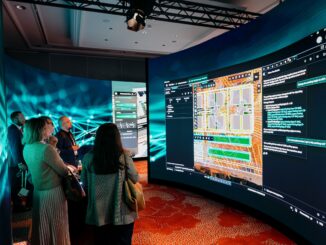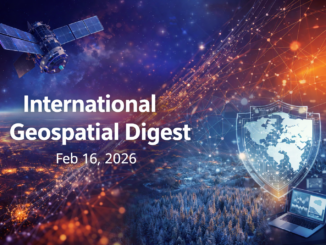
NCSA has announced they will be collaborating with the Blue Waters Project, National Geospatial-Intelligence Agency, University of Minnesota and Ohio State University to produce digital elevation models of the entire earth.
This new collaboration will seek to build and refine the pipeline for producing digital elevation model and cut down on the time and cost to produce impactful data.
NCSA to help build world’s most powerful geospatial system
Preparing for Hydrographic AI Network and Systems

Commercial Marine Autonomous Surface Ships (MASS) like the “Rolls Royce-Kongsberg” are developing prototypes that will be tested in Norway. The goal being to provide to economies in terms of fuel consumption, optimization of transportation routes, reduction of greenhouse gases and the reduction of risk to navigation.
In the world of ocean sciences, there is a lack of basic data. Although there is a lot of unknown and unavailable data, alternative data sources such as Crowd-Sourced Bathymetry, Airborne hydrographic Lidar, autonomous data acquisitions vehicles will be forces and accelerated more than ever. It will be interesting to see what comes of the emergence of AI in hydrography, and to continue to learn of all the opportunities it will bring.
Preparing for Hydrographic Artificial Intelligence Network and Systems
Radar Image Highlights Growth of Small Satellite Industry

On Friday August 9th, 2019, a Finland based imaging satellite start-up announced that it is capable of producing radar images with a resolution of less than 1 meter.
Although larger satellites which are typically in geosynchronous orbit, can achieve higher resolutions than smaller satellites, the later have the capability of being deployed more quickly and in lower orbits.
This Radar Image Highlights The Growth of The Small Satellite Industry
Ghana to host Africa Geospatial Data and Internet Conference
Ghana will host the Africa Geospatial Data Conference in Accra from October 22-24.
The goal of the conference is to inform and inspire cross-sectoral policy and decision makers in Africa.
The event is expected to bring about 1,200 people from various stakeholders to discuss public policy issues relating to geospatial and open data.
Ghana to host Africa Geospatial Data and Internet Conference
Application of Immersive Technologies in Smart Cities

In the quest to transform the concept of smart cities from an ambitious plan into reality, governments, urban planners, engineers and architect are strategizing on how to leverage this new age of digital technologies.
AR technologies have grown to the point where they are able to impact cities in terms of navigation, disaster response and medical services. VR technologies have been able to impact cities in terms of education, urban planning and police training. It will be interesting to see where this technology continues to take us in order to create a smart city.




Be the first to comment